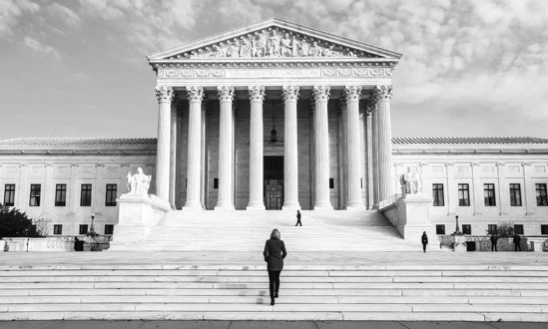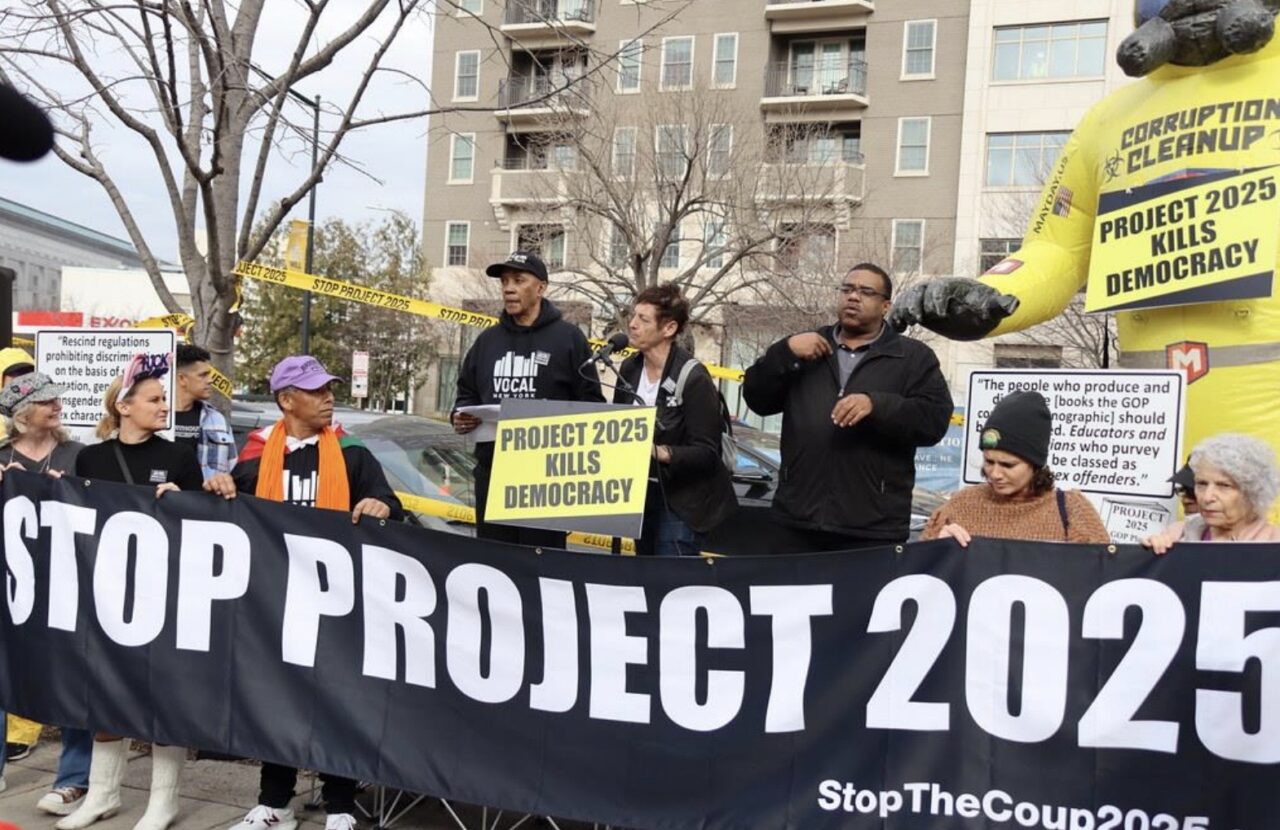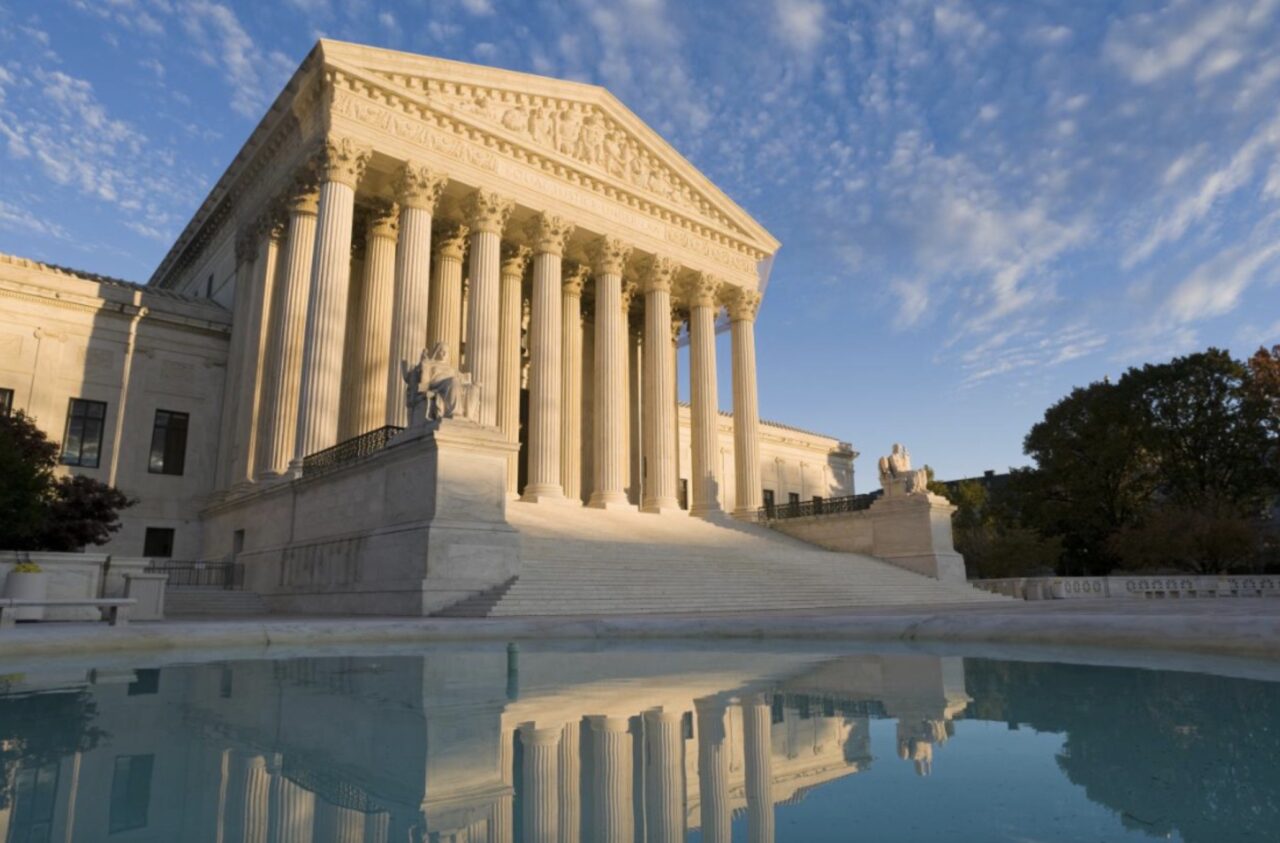The Supreme Court: A Guide for Advocates
This Navigator Research report contains polling data on Americans’ latest perceptions the Supreme Court following the end of its term, including tracking current favorability of the Supreme Court, which alleged ethics violations by Supreme Court justices are most concerning to Americans, and public support for potential Court reforms and ethics investigations.
Pluralities of Americans are unfavorable toward the Supreme Court and feel it is making decisions that are taking away their freedoms.
By a 5-point margin, the Supreme Court is net underwater as nearly half have an unfavorable view of the institution (43 percent favorable – 48 percent unfavorable), including seven in ten Democrats (net -45; 23 percent favorable – 68 percent unfavorable), half of independents (net -18; 32 percent favorable – 50 percent unfavorable), and even one in four Republicans (net +41; 67 percent favorable – 26 percent unfavorable). When asked which terms best describe the Supreme Court, the top two terms Americans chose were “corrupt” (48 percent) and “unaccountable” (45 percent). Three in five Americans under the age of 35 view the Court as “corrupt” (60 percent).
- Nearly half of Americans (48 percent) say the current Supreme Court is making decisions that take away their freedoms, compared to just 29 percent who say the Supreme Court is making decisions that protect my freedoms. College-educated women are most concerned, as 62 percent say their freedoms are being taken away (42 percent feel this way strongly).
- Three in five Americans agree with the progressive argument that “the Supreme Court is increasingly corrupt and facing a legitimacy crisis because it is putting politics above the law” over the argument that “the Supreme Court is doing its job independently and fairly by deciding cases based on the law, not politics” (net +20; 60 percent progressive argument – 40 percent conservative argument). By 76-point and 46-point margins, respectively, Black Americans and those under the age of 35 drive support for the progressive argument. Nearly two in five Republicans also agree with the argument that the Supreme Court is increasingly corrupt and losing the confidence of the public (37 percent).
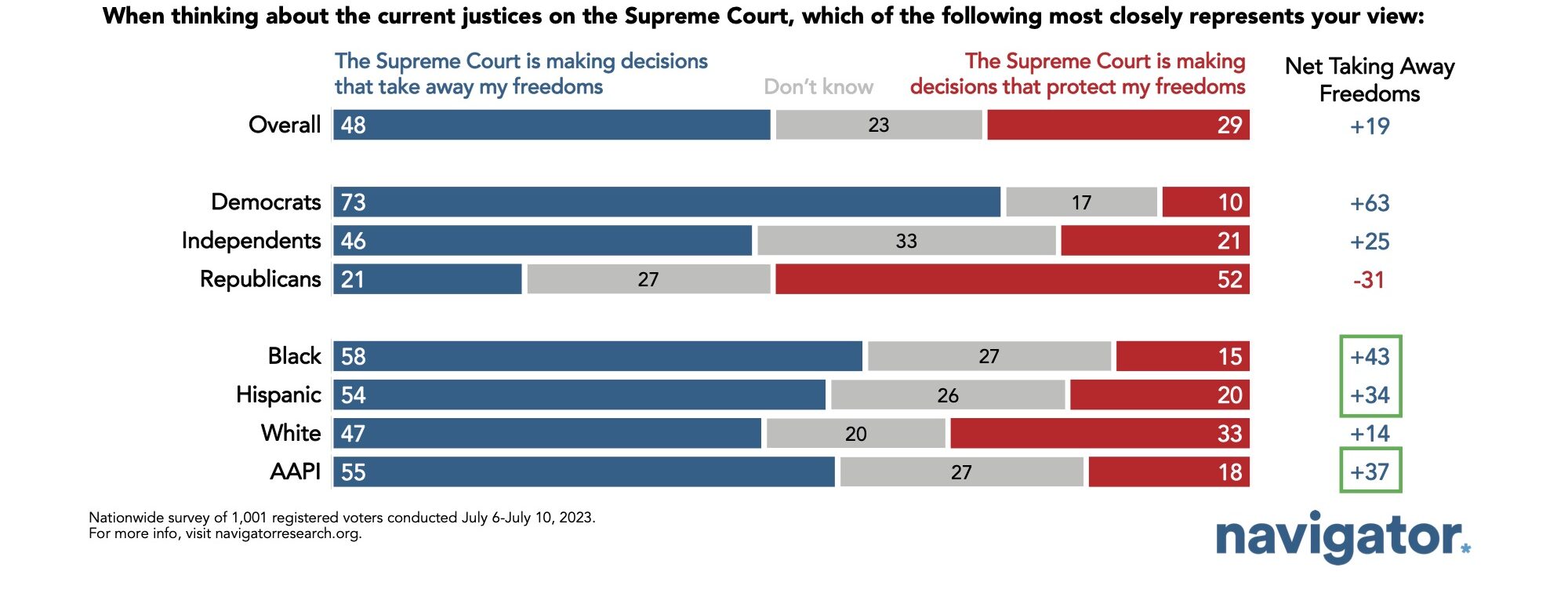
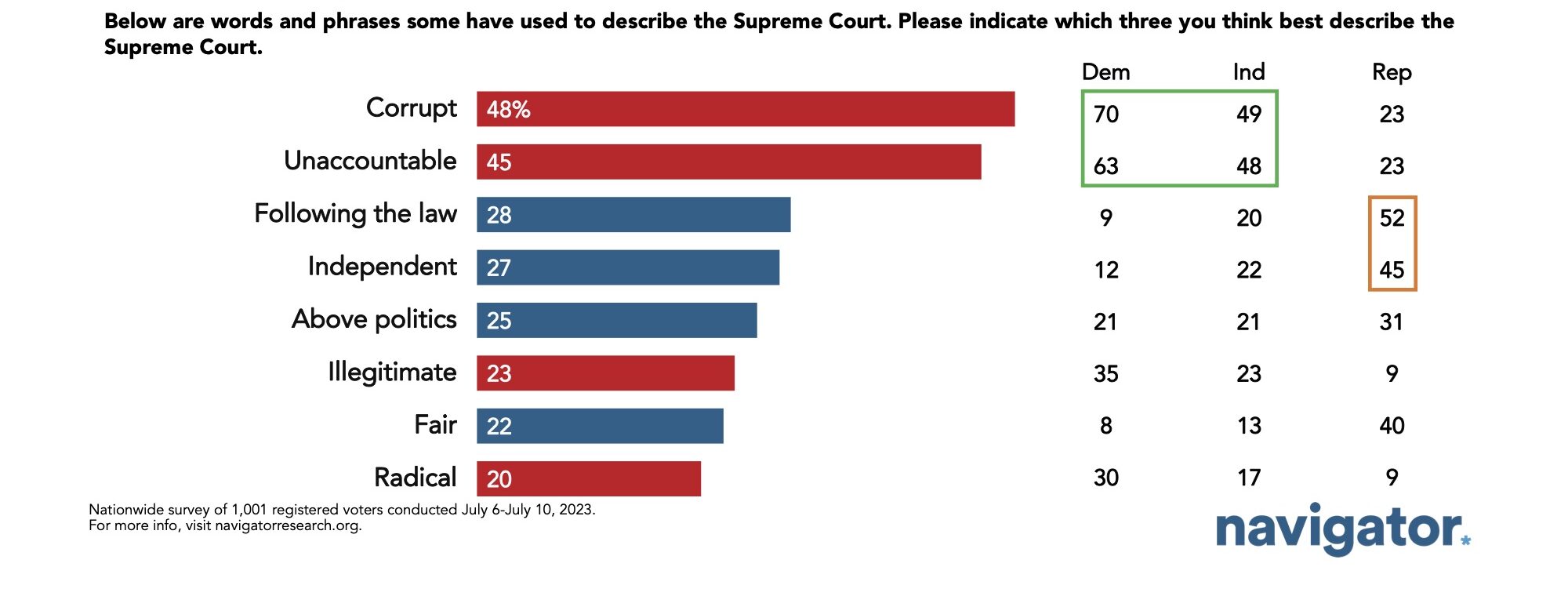
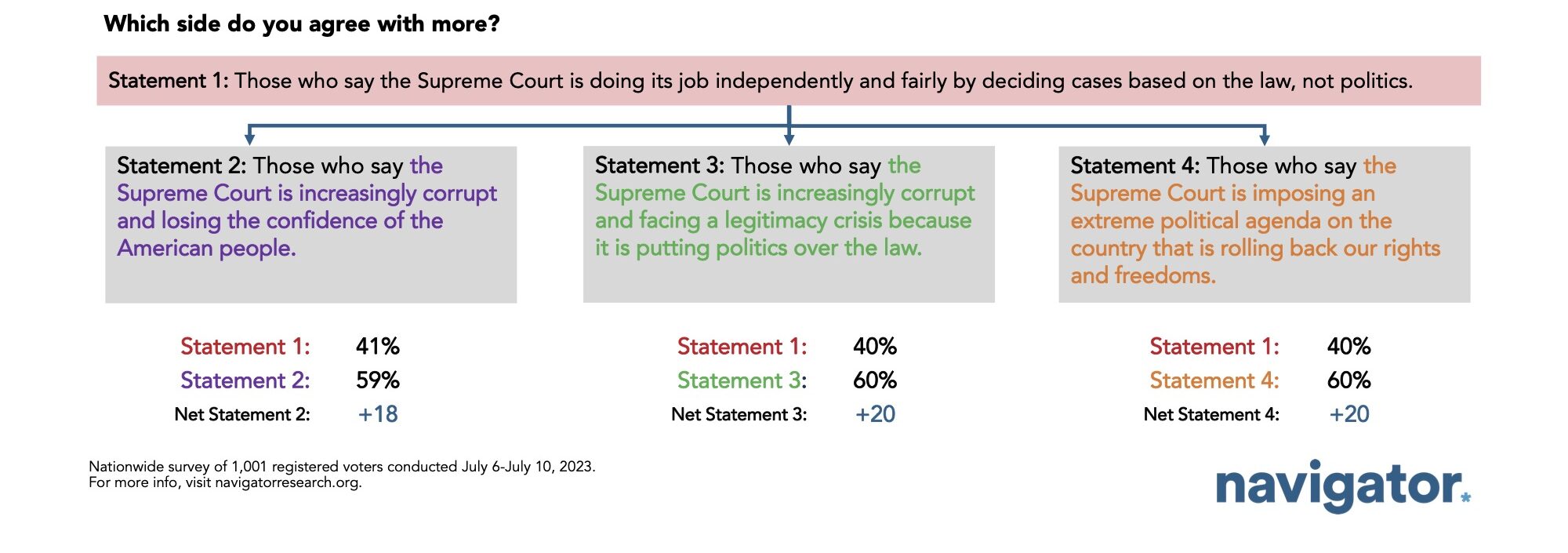
Americans blame the Supreme Court for rejecting President Biden’s student loan debt forgiveness plan, as a majority support the administration providing student debt relief through an alternative authority.
Following the Supreme Court ruling that the Biden administration overstepped their authority in providing student loan forgiveness, Americans place the greatest blame on the Supreme Court for 43 million Americans who were promised student loan debt relief no longer receiving it (36 percent), including a majority of Democrats (58 percent), a plurality of Americans under the age of 35 (44 percent), and Americans with a college degree (43 percent); fewer blame either President Biden (24 percent) or Congress (23 percent) for not getting student loan debt relief by double digits.
- By 26 points, Americans support President Biden “[providing] student loan debt relief under the Higher Education Act, creating a more affordable repayment plan for borrowers, and instituting a 12-month ‘on-ramp’ to repayment of student loans” (net +26; 56 percent support – 30 percent oppose). Majorities support President Biden’s alternative student loan forgiveness plan regardless of their student loan debt status, including those who currently have student loan debt (71 percent support), those have or have had student loan debt (61 percent support), and even those who have never had student loan debt (53 percent support).
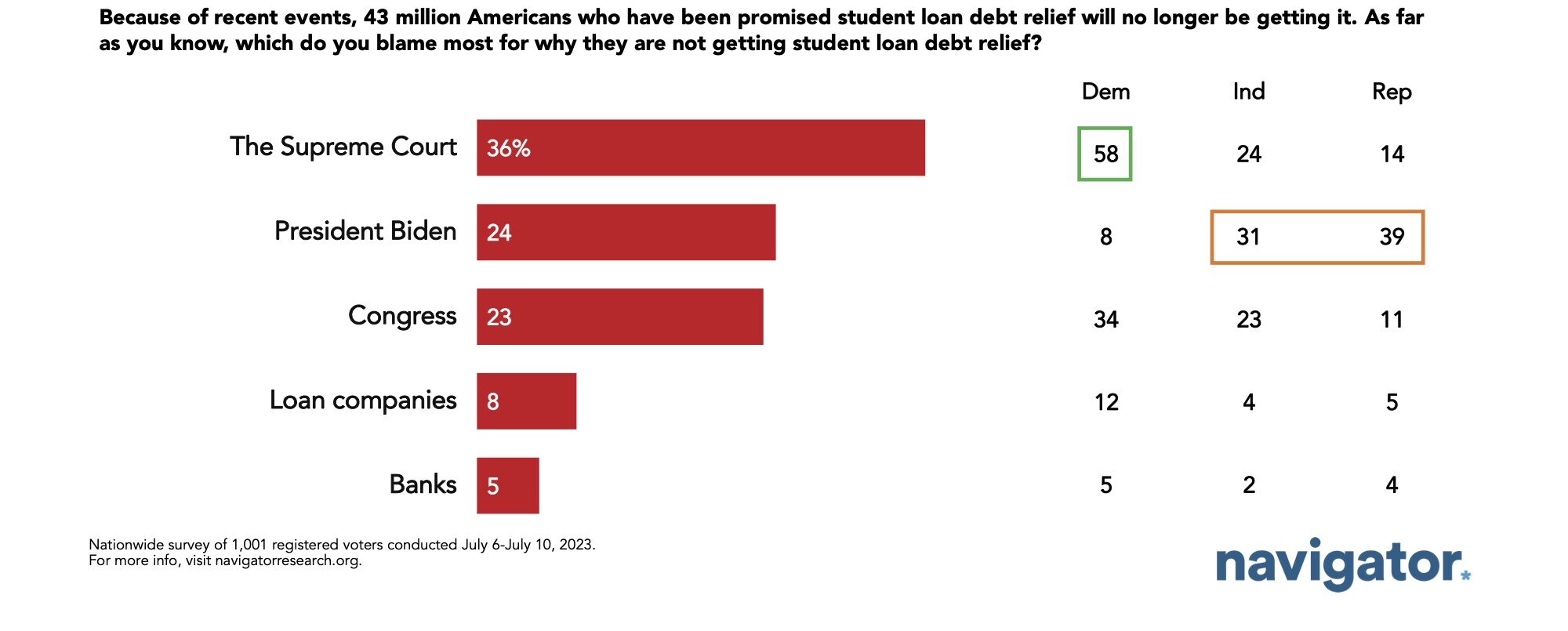
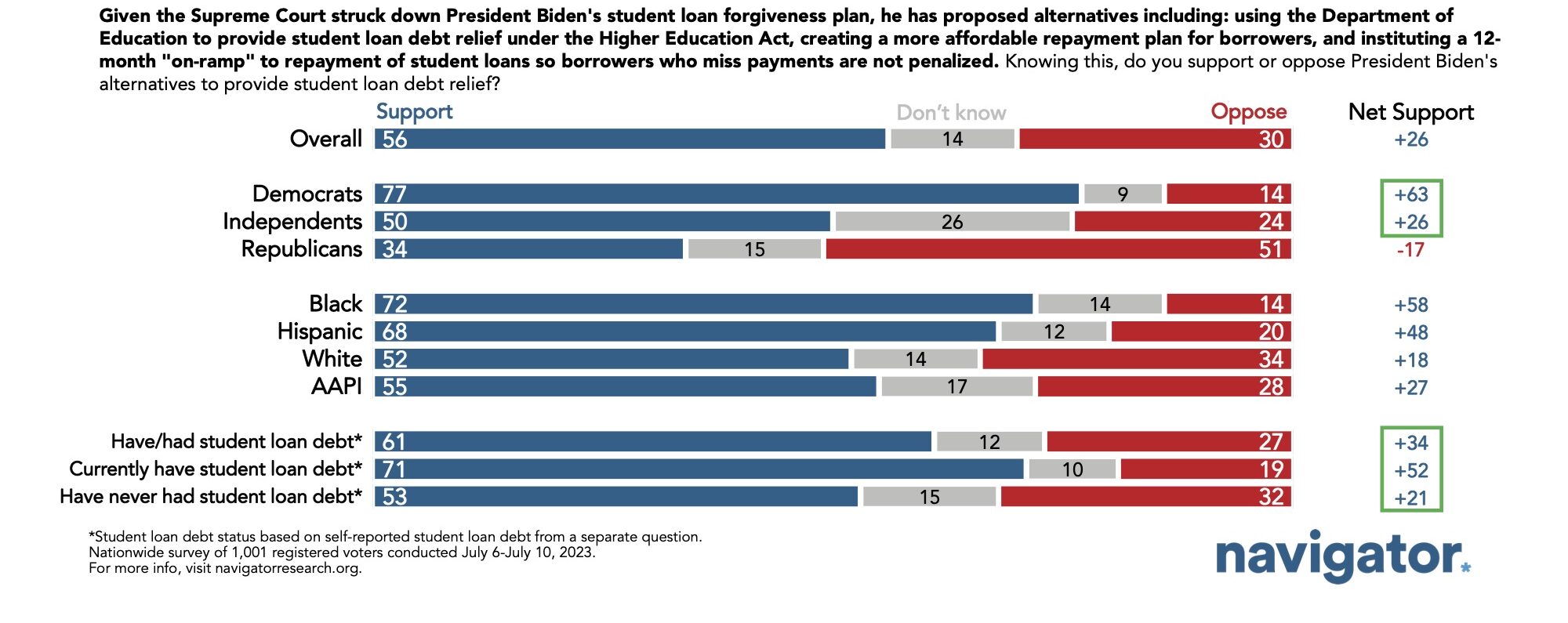
Vast majorities of Americans are concerned by the alleged ethical violations of several Supreme Court justices, with the actions of Supreme Court Justice Clarence Thomas seen as most concerning.
Three in four Americans find it concerning that “Justice Clarence Thomas accepted gifts and luxury travel from a Republican mega-donor for years without disclosing it as federal law requires” (73 percent, including 51 percent who find it “very” concerning). 70 percent of Americans find it concerning that “a Republican mega-donor purchased real estate in Georgia from Justice Clarence Thomas, where Thomas’ mother now lives and pays no rent” (including 45 percent who find it “very” concerning). Additionally, 68 percent are concerned that “Justice Clarence Thomas’ wife is a right-wing activist who supported efforts to overturn the 2020 presidential election as Thomas himself was hearing cases on it,” including 46 percent of whom find it “very” concerning.
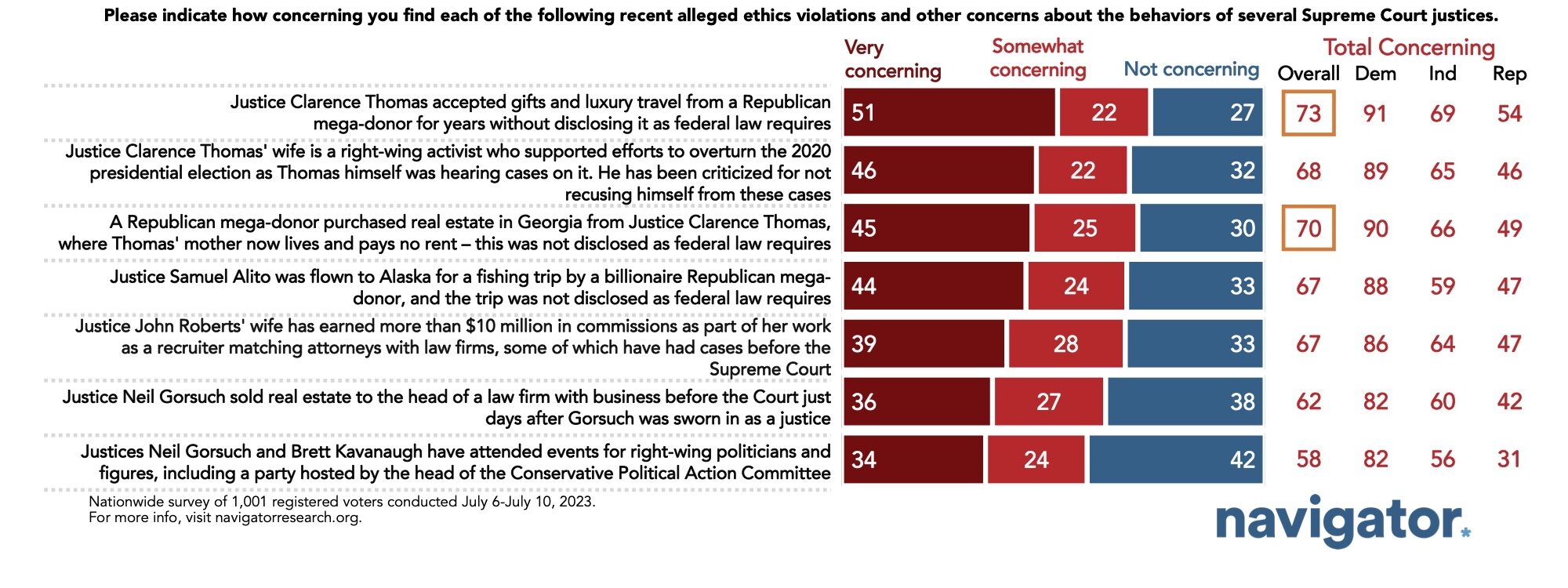
Two in three Americans support term limits for Supreme Court justices and establishing ethical oversight.
By a 42-point margin, 65 percent of Americans support setting term limits for Supreme Court justices (only 23 percent are opposed). There is majority support for term limits across partisanship, including three in four Democrats (73 percent), three in five Republicans (59 percent), and a majority of independents (54 percent). A majority of Americans prefer Justices serving fixed 18-year terms (59 percent support, compared to 22 percent who prefer the current way the Supreme Court works where Justices serve for life), with Democrats demonstrating the strongest support for term limits (72 percent), followed by independents (57 percent support), and a plurality of Republicans (46 percent).
- Seven in ten Americans support Congress conducting investigations into potential ethics violations by Supreme Court justices (net +52; 69 percent support – 17 percent oppose), including 83 percent of Democrats, 63 percent of independents, and 55 percent of Republicans. A similar share of Americans support Congress passing legislation requiring the Supreme Court adopt a code of conduct and holding Justices to stricter financial disclosure rules, including investigating formal complaints against Justices by judges serving on lower courts (net +50; 67 percent support – 17 percent oppose). Additionally, two in three Americans also support the Supreme Court establishing an independent investigative body and being advised by an ethics counsel (net +48; 65 percent support – 17 percent oppose), with net positive support among Democrats (net +75), independents (net +34), and Republicans (net +20).
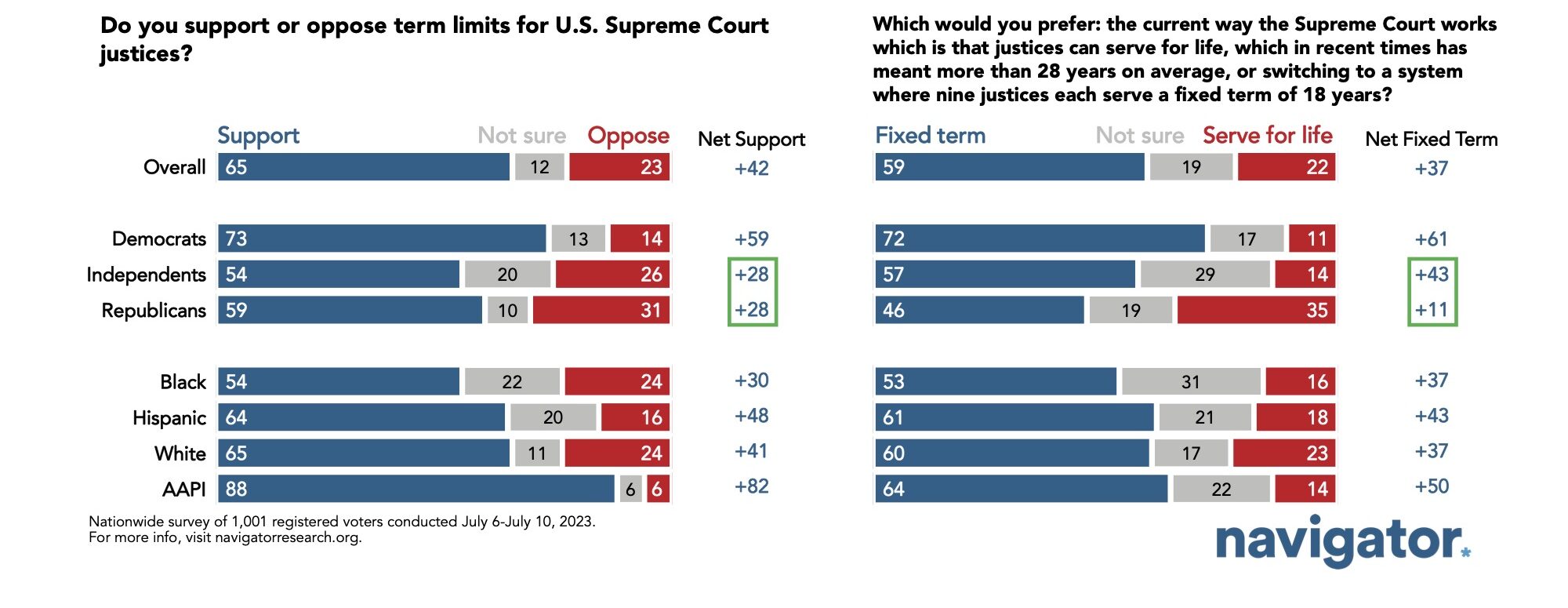
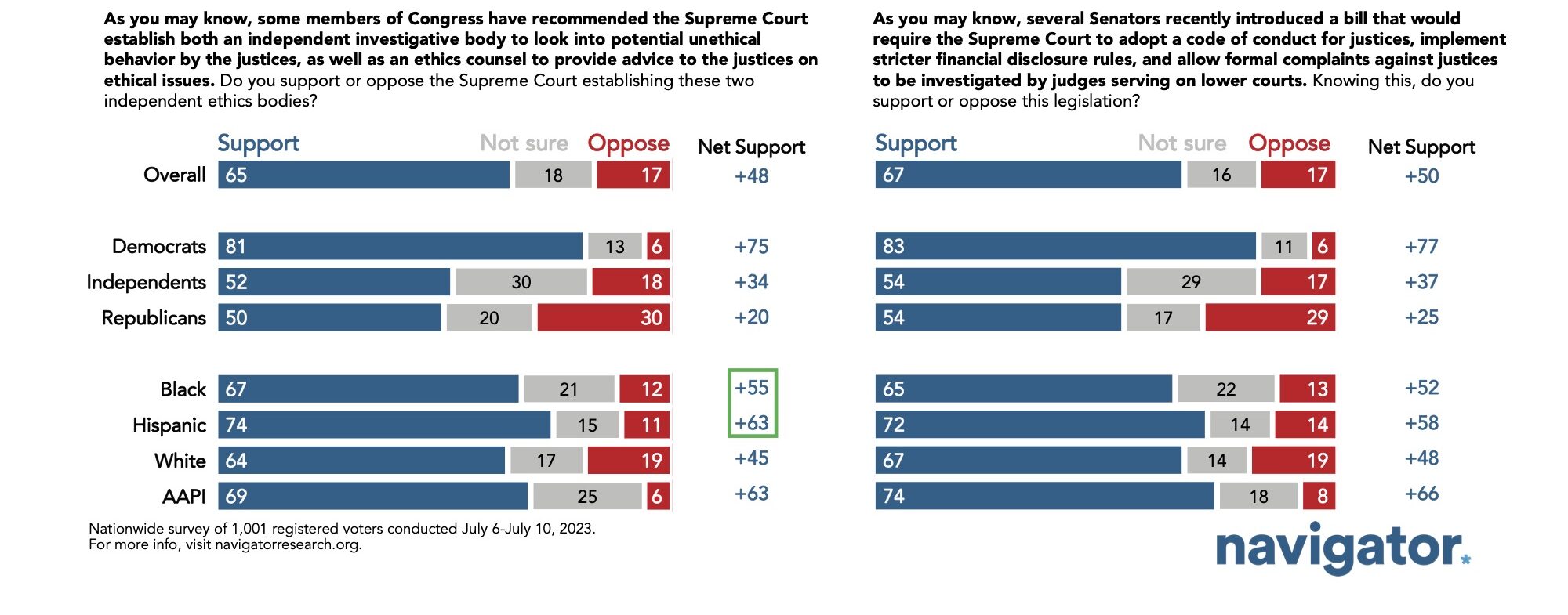
Read More
About The Study
Global Strategy Group conducted public opinion surveys among a sample of 1,001 registered voters from July 6-July 10, 2023. 102 additional interviews were conducted among Hispanic voters. 82 additional interviews were conducted among Asian American and Pacific Islander voters. 102 additional interviews were conducted among African American voters. 99 additional interviews were conducted among independent voters. The survey was conducted online, recruiting respondents from an opt-in online panel vendor. Respondents were verified against a voter file and special care was taken to ensure the demographic composition of our sample matched that of the national registered voter population across a variety of demographic variables.
